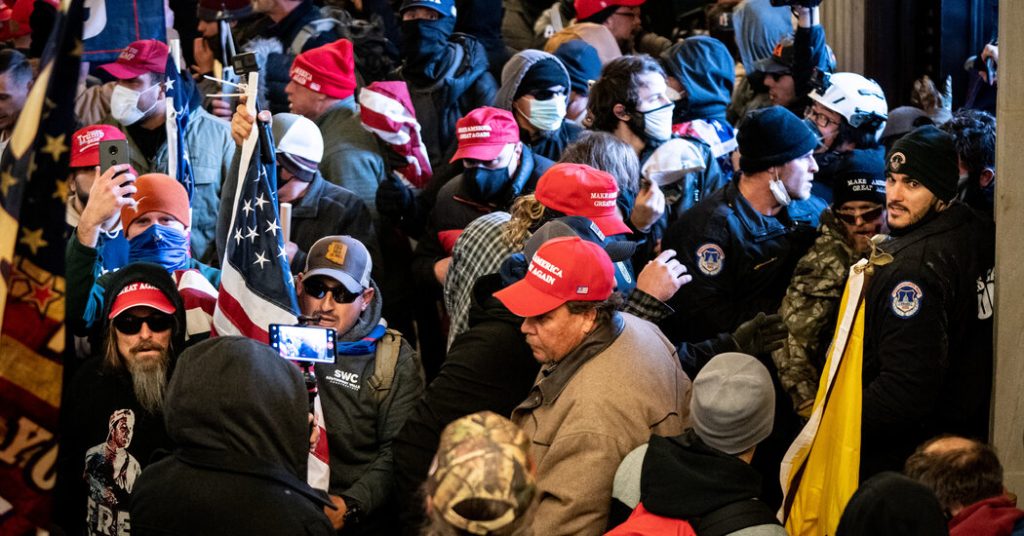The Supreme Court is considering the use of a federal obstruction law to charge rioters involved in the Capitol attack on Jan. 6, 2021. This law could also affect former President Donald Trump’s case, which accuses him of plotting to overturn the 2020 election. The justices’ questions focused on whether the assault justified using the law to prosecute members of the mob, as well as concerns about selective prosecution and the broad interpretation of the law.
The law in question is a provision of the Sarbanes-Oxley Act of 2002, which makes it a crime to corruptly obstruct an official proceeding, not just alter evidence. The justices debated whether this catchall provision could apply to various forms of protests, leaving them wary of the law’s broad interpretation. The outcome of the ruling is uncertain, as most defendants have not been charged under this provision, and those who have face other counts as well.
The prosecution in the case argued that the events on Jan. 6 constituted obstruction under the law because rioters attempted to disrupt Congress’s certification of the election results. However, several justices expressed concerns about the breadth of the government’s reading of the law, as it could lead to potentially severe consequences for various forms of protest or disruption of official proceedings.
The law sought to close a gap in the federal criminal code by addressing the obstruction of official proceedings, but the provision’s language is broad. The second part of the law applies to corruptly obstructing any official proceeding, not just altering evidence, leading to the current debate in the Supreme Court. Justices struggled to interpret the intent of the lawmakers who enacted the law in response to the Enron scandal and whether the law should be applied narrowly.
The case involving Mr. Fischer, a former police officer charged with violating the law, brings up questions about the scope of the law and its application to his alleged actions during the Capitol attack. His lawyer argued against a broad interpretation that could criminalize political protests and other forms of dissent. The justices considered the wording of the law and its link to obstructing evidence as they deliberated on the case.
The Supreme Court’s ruling on this case is expected later in the year and could have implications for other pending cases involving the Capitol attack and related matters. As the justices weigh the arguments presented, they must navigate the complex language of the law and its intent, particularly in the context of the events that sparked its enactment post-Enron. The outcome of this case will have far-reaching consequences for how federal obstruction laws are applied in the future.


